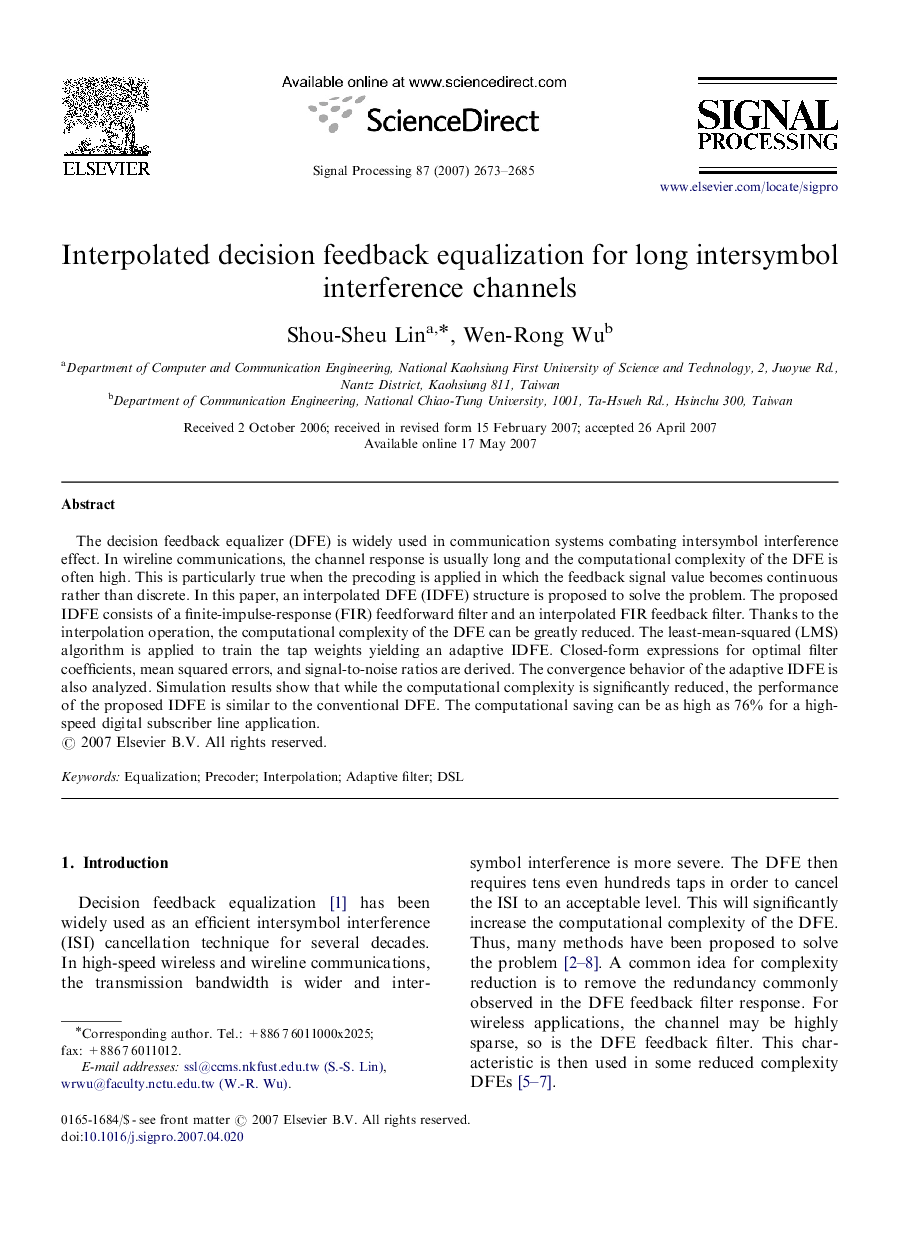| Article ID | Journal | Published Year | Pages | File Type |
|---|---|---|---|---|
| 564818 | Signal Processing | 2007 | 13 Pages |
The decision feedback equalizer (DFE) is widely used in communication systems combating intersymbol interference effect. In wireline communications, the channel response is usually long and the computational complexity of the DFE is often high. This is particularly true when the precoding is applied in which the feedback signal value becomes continuous rather than discrete. In this paper, an interpolated DFE (IDFE) structure is proposed to solve the problem. The proposed IDFE consists of a finite-impulse-response (FIR) feedforward filter and an interpolated FIR feedback filter. Thanks to the interpolation operation, the computational complexity of the DFE can be greatly reduced. The least-mean-squared (LMS) algorithm is applied to train the tap weights yielding an adaptive IDFE. Closed-form expressions for optimal filter coefficients, mean squared errors, and signal-to-noise ratios are derived. The convergence behavior of the adaptive IDFE is also analyzed. Simulation results show that while the computational complexity is significantly reduced, the performance of the proposed IDFE is similar to the conventional DFE. The computational saving can be as high as 76% for a high-speed digital subscriber line application.
